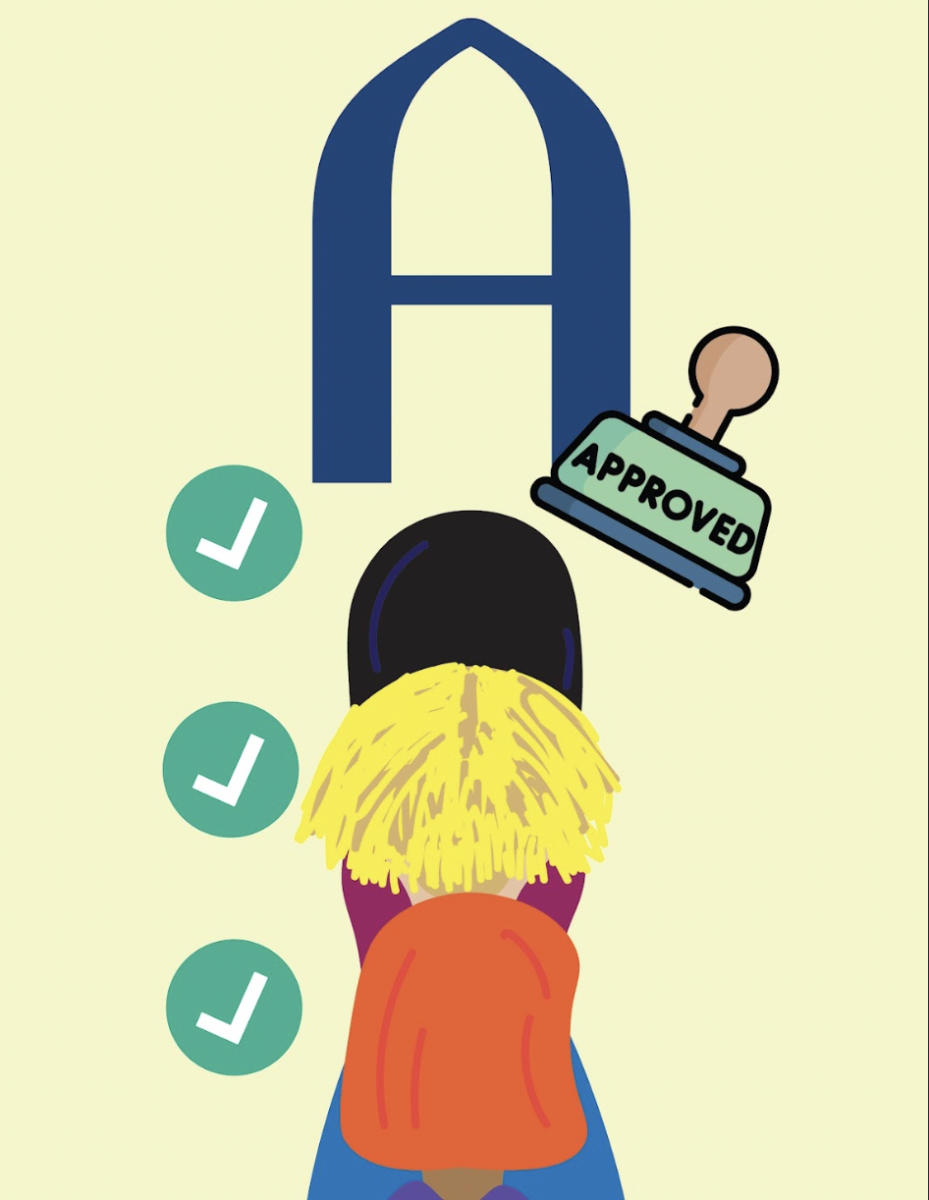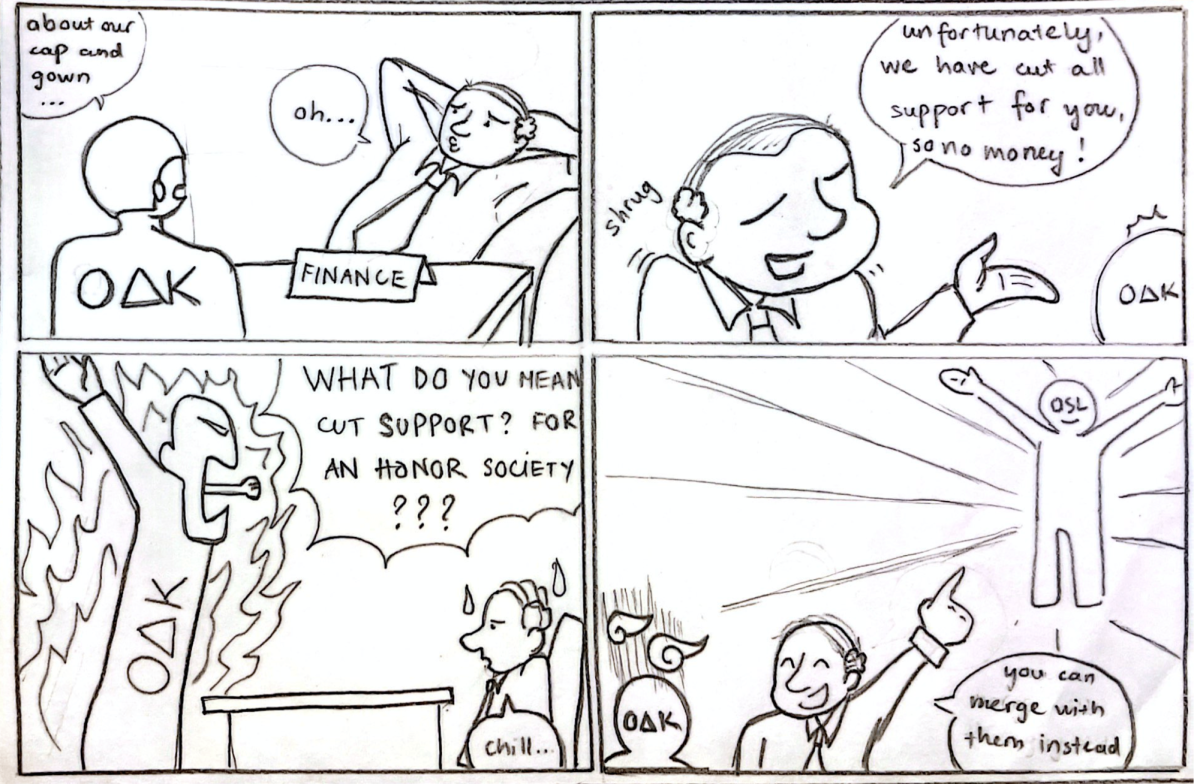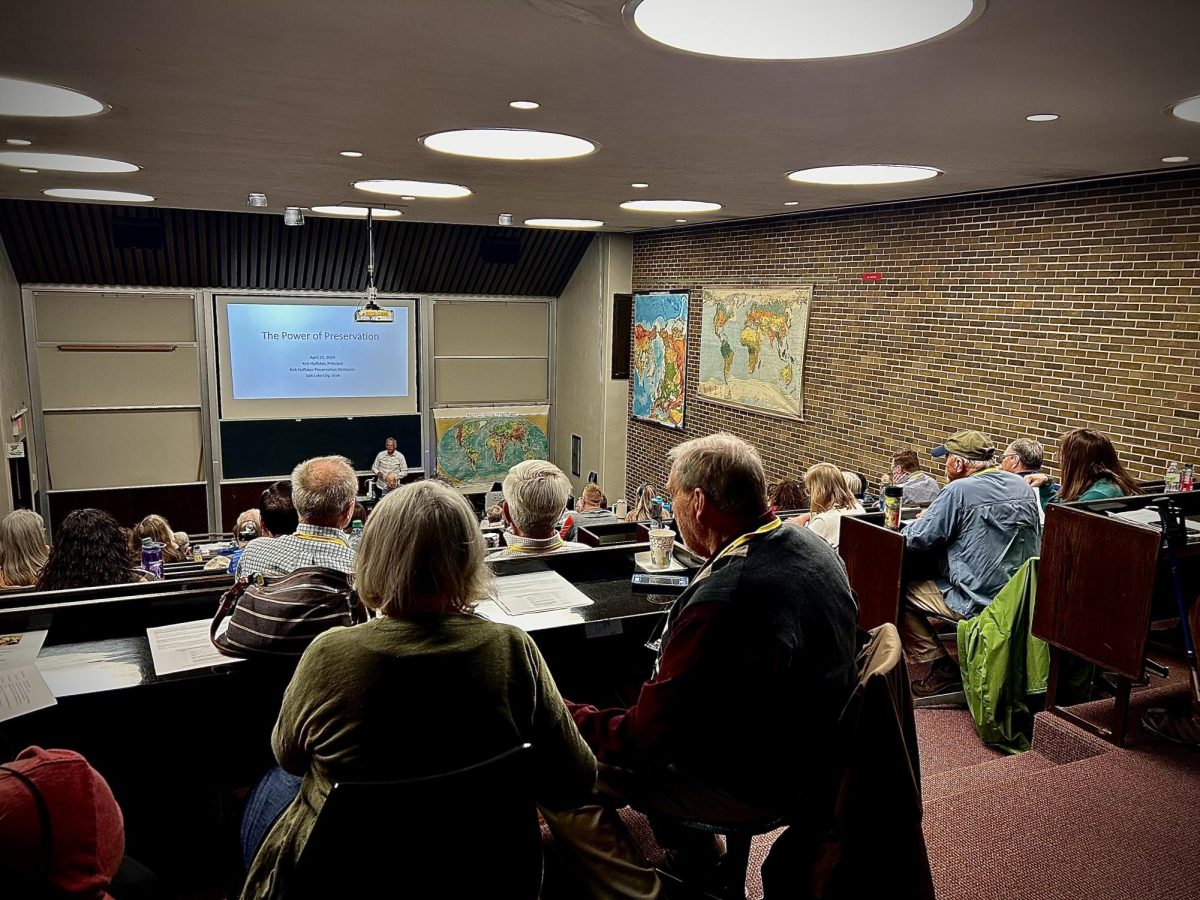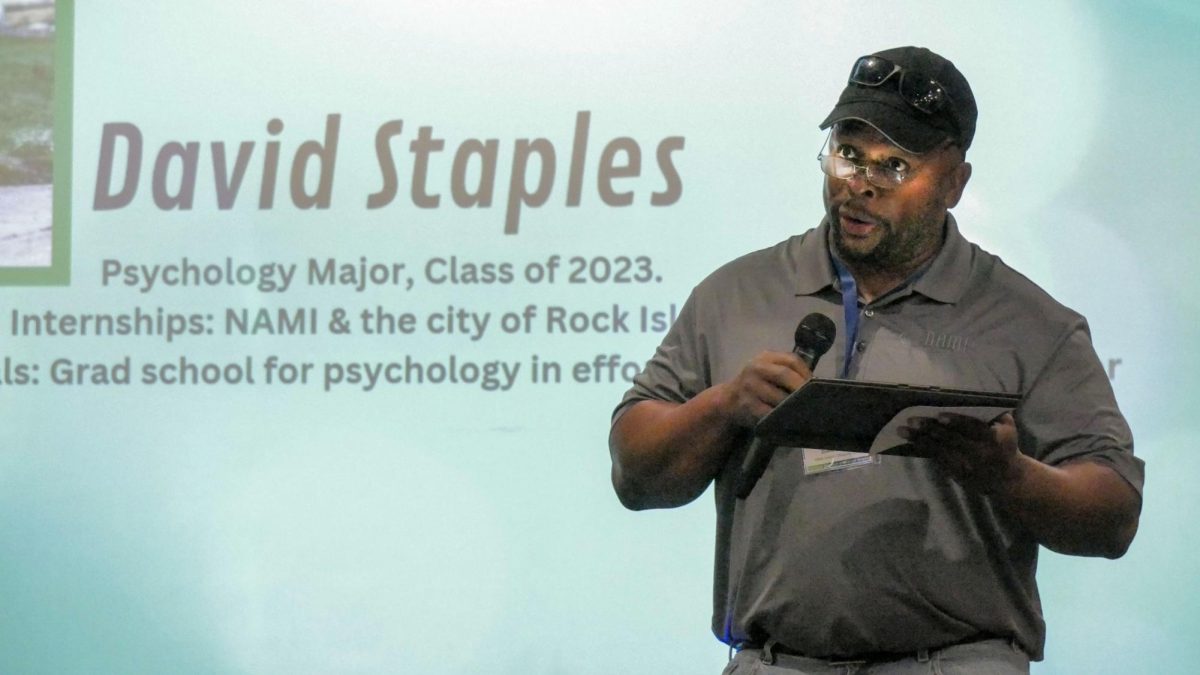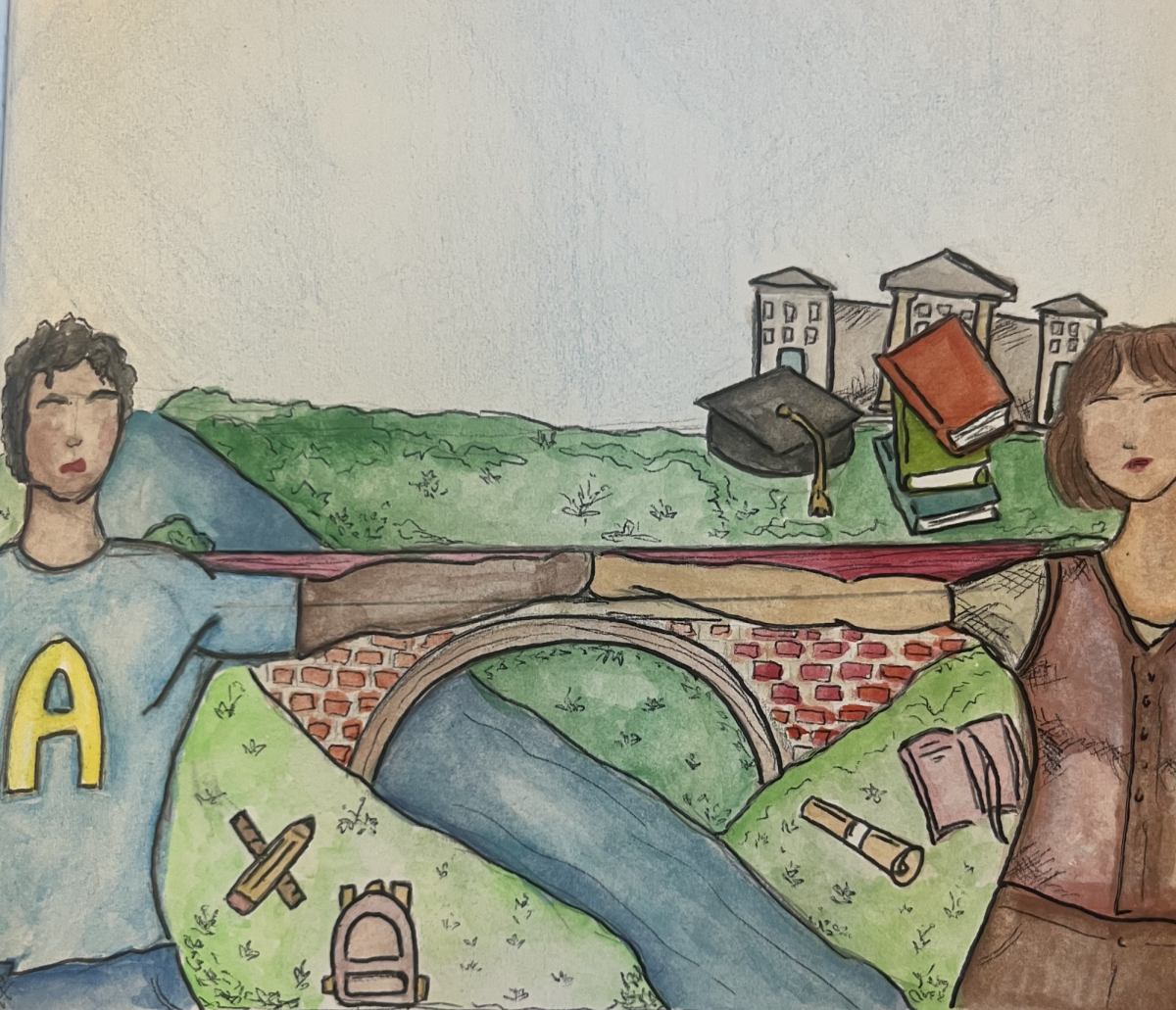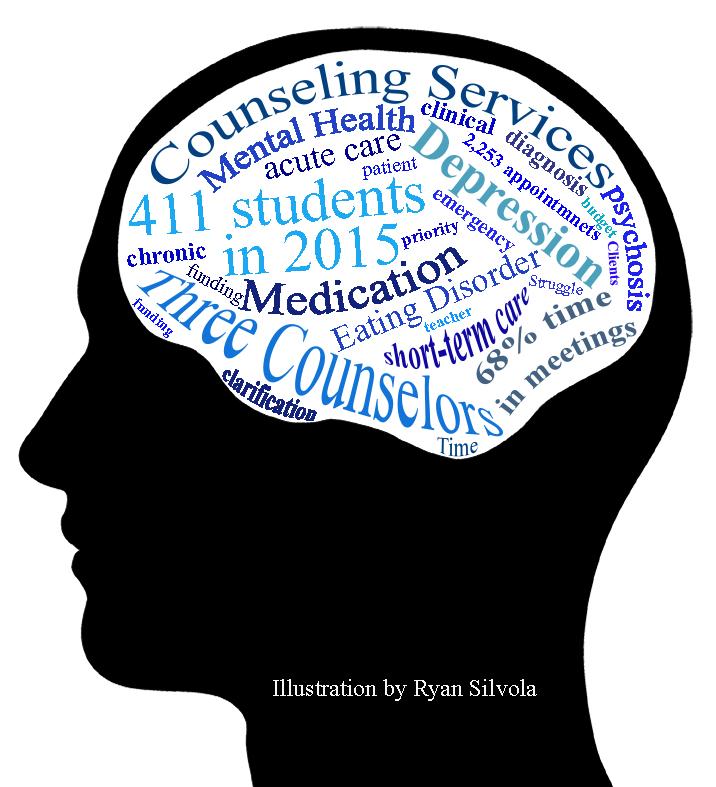Augustana College has made a clarification that students seeking counseling services through the school will be allotted 12 sessions a year, said Evelyn Campbell, dean of students.
The clarification, which was hotly discussed at the SGA presidential debate, was made because some students were confused about what services are available.
Campbell said it was best to establish some clear guidelines.
Michael Tendall, director of counseling services, said there has always been a guideline for the number of sessions a counselor should see a for student annually.
However, since counseling is on such an individual basis, the amount of times a student comes in may vary from once a month to every week.
“These are not hard and fast, like you have a punch card, and its like, okay, you’ve had seven, now you’ve got five left,” said Tendall.
Students seek services based on their mental health needs at the time, Tendall said.
That could mean coming in for anywhere from one to occasionally 25 sessions annually.
If the student has a need the counseling service doesn’t feel it can adequately address, then Augustana will refer the student to community resources.
One such mental health need is eating disorders, since none of the three counselors at Augustana are experts in that topic, said Tendall.
“The fundamental bottom line is that we will get someone connected, whether it’s in the community or here, to make sure we’re offering whatever assistance and help,” said Tendall.
Campbell said this referral process has always been in place, and it is just now being verbalized.
“We’ve always been a short term therapy center or treatment center, but I’m not sure we’ve always been as open about saying what ‘short-term’ meant,” said Campbell.
Counseling by the numbers
In the last 25 years, the numbers of counselors has increased from one full-time counselor to two full-time and one part-time counselors, said Tendall. Currently, Augustana’s counseling services is comprised of three counselors: Tendall and Dr. Deborah VanSpeybroeck, both of whom work full-time, and Allison Koster, licensed clinical social worker, who works half-time, along with secretary Cheri Mizaur.
Tendall said there is typically a two- to three-day wait for a student to see a counselor.
Tendall said that the average number of sessions the average student attends has floated up over the years due to the increased usage of mental health services. Tendall said nationally, students are using college counseling services at an increased rate.
According to data obtained from Augustana’s counseling services, the number of scheduled appointments has, for the most part, steadily increased from 1,540 during the 2008/2009 school year to 2,253 in the 2014/2015 school year. During that same seven-year period, the number of scheduled clients has, for the most part, also steadily increased from 303 to 411.
Even though there has been an increase in both clients and appointments, the average number of hour-long appointments per client has fluctuated between five and six from 2008 to 2015.
With VanSeybroeck and Tendall typically working approximately 40 hours a week and Koster typically working 20 hours, that means the three counselors are spending approximately 68 percent of their time in counseling sessions with students.
However, meeting with students is not all their jobs entail.
Tendall has set aside two hours weekly to see people who have mental health emergencies. After hours, either residential life or public safety calls Tendall if the matter is related to a person’s mental health, no matter the time of the night.
“My phone is like the bat phone,” said Tendall.
If he’s not in the area, then another counselor is on-call.
Tendall also attends other student life meetings with other directors, will consult with the dean of student’s office as needed, stay up to date with writing clinical case notes and preparing for presentations.
Tendall said that based off of the steady increase, in the next five to seven years it might be beneficial to have three full-time employees.
Exploring short-term care
Tendall said that most of the student’s mental health needs fall under short-term care or needs that would be classified as acute mental health issues.
Tendall said the college doesn’t handle chronic mental health issues such as schizophrenia or a patient who has psychosis. Acute means a mental health issue that’s more episodic, such as depression that can mostly be dealt with within 12 visits.
“We really work with a population that is able to function and go to school,” said Tendall.
He said almost all colleges and universities operate on this short-term model.
Sophomore Clarissa Stephenson has been utilizing the counseling services regularly for most of this academic year, and the policy change wasn’t ever brought up until after she addressed the issue after hearing rumors about the clarification during the Student Government Association presidential debate during mid-March. Stephenson said she has benefitted from the counseling services, but she doesn’t believe the college should be emphasizing short-term care.
“Struggling with mental health is not something that is short term,” said Stephenson. “Saying ‘short-term care’ implies a deadline that doesn’t really exist, necessarily.”
Stephenson said there needs to be an emphasis put into funding mental health awareness on the campus, and the college is not making it enough of a priority.
“I feel like saying ‘short-term care’ implies you can get better, but it’s not something that’s like curable, I guess, because there’s not really anything wrong,” said Stephenson. “It’s just needing to re-center.”
Stephenson said the college should add more resources to counseling services by increasing the office’s funding or adding counselors.
Campbell said the college has used its funds to create a balanced budget to meet the needs of the students, including the number of counselors.
“You could ask that question, couldn’t you, about every single need a student has?” said Campbell. “I want another biology teacher. I want another psychology teacher. I want fewer people in my classes. You could say it about everything, and you could say it about this.”
Tendall said the resources of counseling services should be able to sustain the office for at least the next few years, even though more students are utilizing counseling services on both a local and national scale.
Referring outside the college
If a student has to be referred outside of the college for treatment, Tendall said the counselors would know early on in the clinical assessment whether or not they would be able to treat the student on-campus.
“It’s seldom that we get to the end,” said Tendall. “Because then we wouldn’t just cut you loose, because then we’ve established a relationship where it’s like well let’s push on, and I think we can get this improved in another few sessions.”
Campbell said the college will be able to provide resources for almost any diagnosis a student may have at Augustana.
If a student doesn’t have the resources for outside treatment, which happens to approximately one student on average every year, then Tendall said counseling services will do their best to accommodate students by looking into community agencies with programs that offer sliding fee scales. This problem becomes especially difficult when medication is needed, said Tendall.
He said Augustana’s insurance, which the college requires almost every student to have, can cover some mental health needs.
If a student has no money, Tendall said counseling will attempt to treat them at Augustana. They will also work as a case manager for students to receive funding from the state, county and other resources.
“There’s seldom anyone that’s like ‘I’m screwed,’ ” said Tendall.
